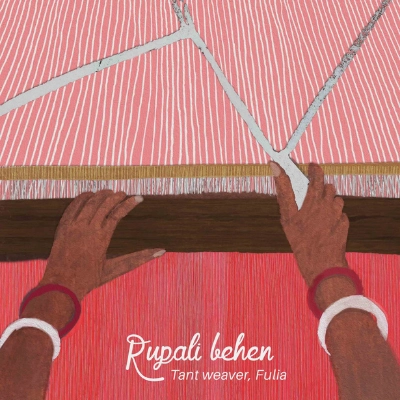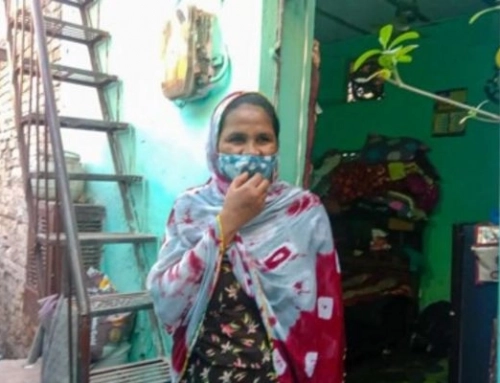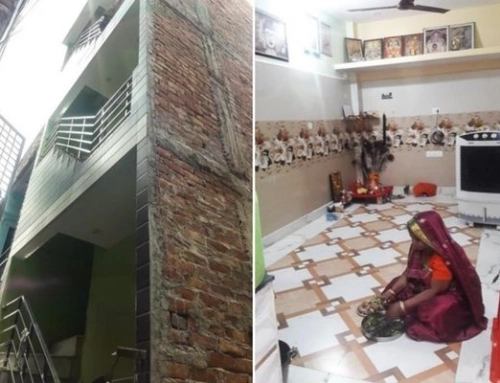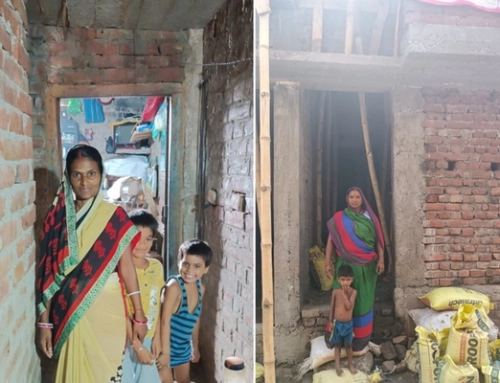
Rupali behen, is a Tant weaver from Phulia, West Bengal, which is known for its high quality sarees throughout Bengal and the world.
A typical day in her life means spending long hours at her loom, sometimes 7-8 hours at a stretch. “The output turns out beautiful only when woven in a single sitting, with patience and concentration”, she says. She likes to draw her designs out, and then recreates the same effect on the loom. This style of weaving is called ‘Jamdani’ in Bengal.
Jamdani sarees used to be a rarity, few weavers and fewer sellers, but the number of people doing this business has mushroomed in recent years. Weavers are now facing tough competition, at times forcing them to part with their goods at measly profits of 10-20 rupees. The pandemic has further added to their woes. With the nationwide lockdown, public transport came to a complete standstill. Both raw materials and finished goods stopped moving efficiently and people stopped ordering sarees. Rupali behen has stocked up unsold sarees worth INR 8-10 lakhs since March. For a micro-enterprise like hers, it’s an unaffordable situation.
SEWA West Bengal has been working closely with her and 4000 other weavers in Phulia, since 2016. “They teach us new things in SEWA, which I share with my neighbors and friends. We talk of positive things such as working together, helping each other, and community participation as a means to success, which I really like.”, says Rupali behen who recently fulfilled an order of 90 sarees from @sewa.ruaab on National Handloom Day.
Rupali behen is a #MahilaMicropreneur.




